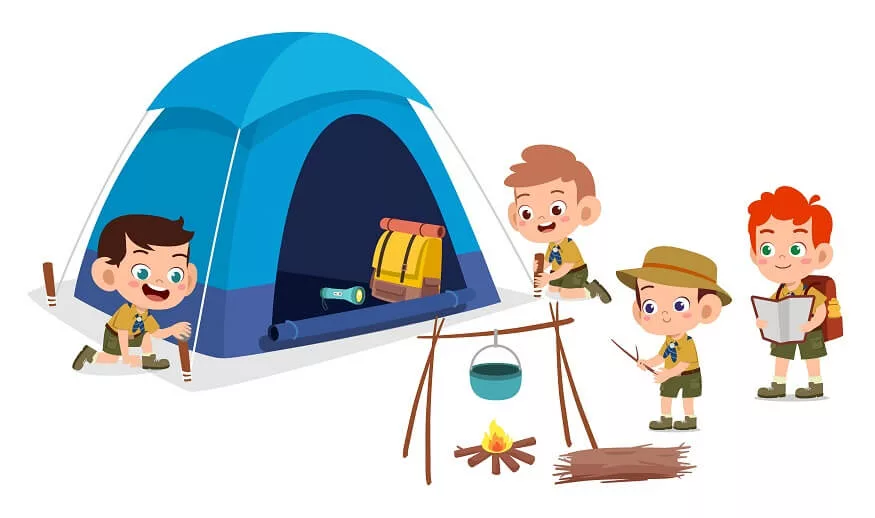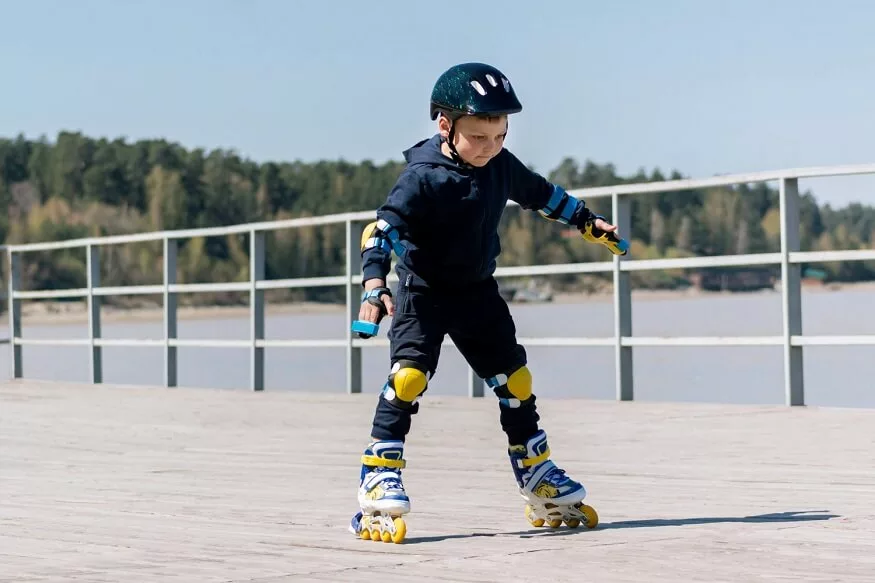Camping is not just an adventure; it is an opportunity for children to learn vital life skills in nature’s embrace. Yet, ensuring kids’ safety during camping is crucial for a fulfilling experience.
In this blog, we will provide valuable insights into essential camp safety tips for kids, ensuring they have a fun and enriching experience when camping.
Also Read: Camping Activities for Kids Who Love Wildlife
- Research the camp
- Health matters
- Dietary guidelines
- Safe navigation strategies
- Water safety
- Emergency preparedness
- Wildlife safety
- Fire Safety
- Protection from heat
- Tent safety
Understanding and choosing the right camp guarantees a safer camping experience for your child. Before you sign up to send your child to a camp, do a thorough background check on the camp to ensure it is accredited, observing safety standards with fully trained staff.
Taking time to understand their philosophy and proposed activities will ensure that the environment they provide aligns with your child’s interests and abilities.
A child’s health is of utmost importance when it comes to camping expeditions. Ensuring children’s good health throughout the camp is vital. Conducting a health check before the camp helps spot any existing health concerns and ensures they’re physically ready for the camping adventure.
Parents must provide the camp authorities with accurate information about any health conditions, allergies, or any medications their child might be on or might need with clear instructions on administering them in the right manner.
Children should be educated about personal hygienic practices and encouraged to follow them when at the campsite. Encouraging campers to maintain a tidy and safe campsite is essential. Organizers should enforce hygiene standards, offering hand washing stations, sanitizers, and clean washrooms across the camping area to prevent the spread of germs.
Also Read: Bicycle Safety Tips for Kids
During the camp, it is crucial to ensure kids stay hydrated and well-nourished. Providing balanced meals in appropriate portions helps keep them active and comfortable throughout the experience.
Parents should communicate any particular dietary allergies or requirements beforehand to camp authorities to ensure the good health and well-being of their child at the camp. Camp organisers must ensure the food provided is prepared and served in line with the health and safety standards to prevent any food poisoning or other food-borne diseases.
It is important to teach kids safe navigation skills. Educate kids about the potential dangers of straying away from the group or marked paths, especially at night when paths and topographies can look unfamiliar.
Equipping them with whistles, torches, glow sticks and even a map of the campsite will enable quick identification of location when needed. Children should be advised not to wander off alone and to stay in designated areas, under the supervision of the camp organisers.
Also Read: Fire Safety Tips for Kids
If the camping itinerary includes water activities near water bodies, such as lakes, rivers or pools, parents should ensure their children are good at swimming or are at least familiar with basic water-handling skills. Ensure that the camp has adequate arrangements of lifeguards, safe marked swimming zones, and lifesaving equipment such as ropes and life jackets, that will ensure the safety of children when in water.
Speaking about emergencies with your child and discussing what to do can make them feel safer and more confident. Emphasize staying calm and finding help during emergencies. Ensure they know their basic personal information (name, parent’s name, and contact information) to provide in case of emergency.
Also Read: Water Safety Tips for Kids
Camps are usually organised in natural settings. Hence children could encounter various insects and wildlife during the course of their stay. Children should be educated about potential risks from wildlife and insects.
Equipping them with insect repellents, proper clothing, and instructions on handling encounters with wild animals ensures they know how to respond correctly. Camp staff should also have first aid kits and knowledge on handling insect bites, leech attacks, or bee stings.
Campfires are an integral part of a camping experience. However, any form of fire comes with inherent risks. Children must be educated about the dos and don’ts around the fire. Children should learn to maintain a safe distance from fires and understand how to extinguish them during emergencies. Camp organizers must ensure adult supervision when lighting campfires and that children are never left alone near the fire.
Also Read: Physical Health Safety for Kids
Summer heat poses a risk of heat strokes in kids especially when they are engaged in physical activities for a long period. Educate children on the importance of staying hydrated throughout their time outside. Encourage regular water intake, even when not feeling thirsty, while avoiding sugary or caffeinated drinks to prevent dehydration. Ensure accessible water stations around the campsite. Plan outdoor activities for cooler parts of the day like mornings or evenings to minimize exposure to daytime heat.
The tent is the most important piece of equipment to check when camping. Ensure the tents provided are sturdy, have working zippers and have proper ventilation. The tents must be placed in safe spaces away from the campfire site. Avoid areas that are prone to landslides, floods, falling branches or other potential hazards to prevent accidents.
Summer camps offer children opportunities to grow, have fun and learn at the same time. By prioritizing camp safety guidelines, parents and camp organizers can pave the way for a secure, memorable camping experience for your child fostering independence, resilience and a deep-seated love for nature in their minds.
For more such interesting blogs, Visit EuroSchool.









